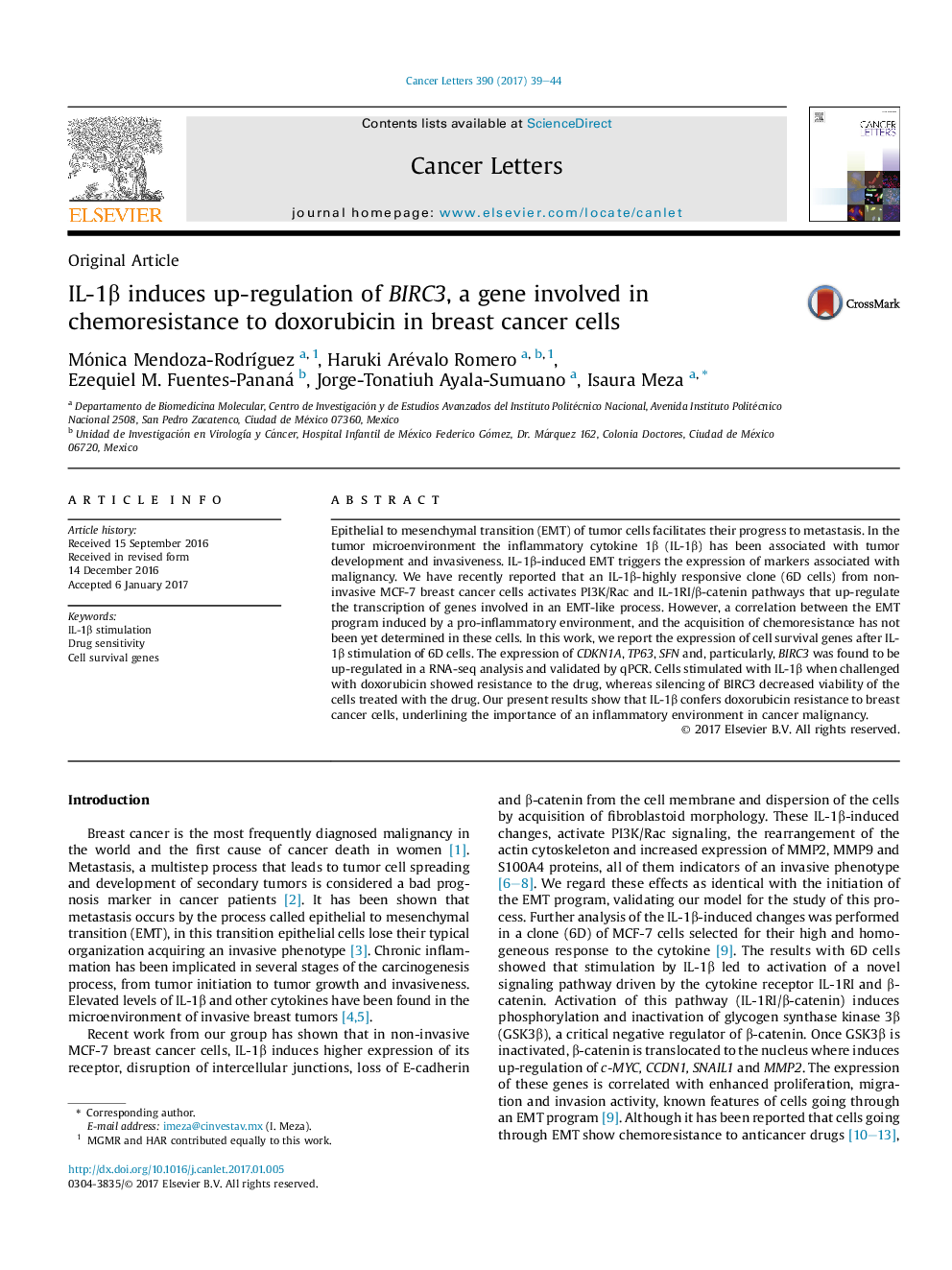| Article ID | Journal | Published Year | Pages | File Type |
|---|---|---|---|---|
| 5525402 | Cancer Letters | 2017 | 6 Pages |
â¢IL-1β induces over expression of cell survival genes.â¢The up-regulated genes were identified by RNA-seq analysis.â¢CDKN1A, TP63 and BIRC3 were the significantly up-regulated genes.â¢BIRC3 participates in resistance to doxorubicin.â¢IL-1β-induced EMT is correlated with chemoresistance to doxorubicin.
Epithelial to mesenchymal transition (EMT) of tumor cells facilitates their progress to metastasis. In the tumor microenvironment the inflammatory cytokine 1β (IL-1β) has been associated with tumor development and invasiveness. IL-1β-induced EMT triggers the expression of markers associated with malignancy. We have recently reported that an IL-1β-highly responsive clone (6D cells) from non-invasive MCF-7 breast cancer cells activates PI3K/Rac and IL-1RI/β-catenin pathways that up-regulate the transcription of genes involved in an EMT-like process. However, a correlation between the EMT program induced by a pro-inflammatory environment, and the acquisition of chemoresistance has not been yet determined in these cells. In this work, we report the expression of cell survival genes after IL-1β stimulation of 6D cells. The expression of CDKN1A, TP63, SFN and, particularly, BIRC3 was found to be up-regulated in a RNA-seq analysis and validated by qPCR. Cells stimulated with IL-1β when challenged with doxorubicin showed resistance to the drug, whereas silencing of BIRC3 decreased viability of the cells treated with the drug. Our present results show that IL-1β confers doxorubicin resistance to breast cancer cells, underlining the importance of an inflammatory environment in cancer malignancy.
